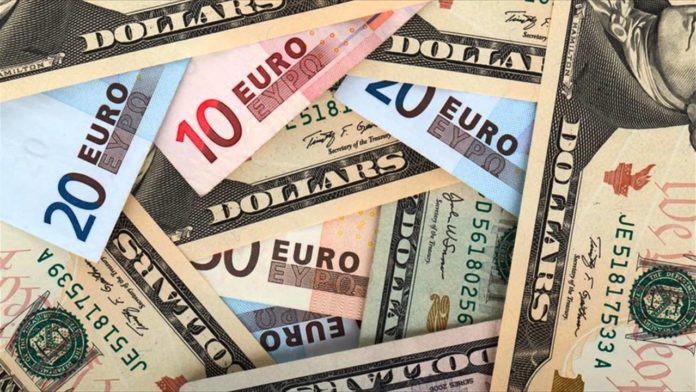
SINGAPORE: The dollar drifted lower in Asian trade on Thursday as demand for safe-haven currencies remained subdued after a rebound in global equities, while the euro strengthened on hopes for a resolution of Italy’s budget dispute.
The dollar had been actively bid over the last two trading sessions as risk appetite receded on fears over a global growth slowdown and the U.S.-Sino trade conflict.
The dollar index, a measure of its value versus six major peers, eased 0.1 percent to 96.62 on Thursday. The index lost 0.13 percent in the previous trading session.
Analysts believe the medium-term direction of the dollar will be decided by the monetary tightening path of the Federal Reserve.
The Fed is expected to announce its fourth-rate hike of 2018 in December, but investors are beginning to question how many rate hikes the Fed can implement next year without risking a slowdown in the U.S., which has held up well so far even as borrowing costs have risen.
Last week, Fed Vice Chair Richard Clarida and Dallas Fed President Robert Kaplan raised concerns over a potential global slowdown that has markets betting heavily that the rate-hike cycle is on its last legs, even as the senior central bankers still signalled further interest rate increases ahead.
The Japanese yen changed hands at 113, relatively unchanged for the day, after weakening over the last two trading sessions versus the dollar.
Analysts expect dollar/yen to trade in the 111.5-114 range and move with the U.S. 10-year treasury bond yields.
While the Fed is on a monetary tightening path, the Bank of Japan looks set to maintain its ultra-loose monetary policy for some time due to low growth and inflation. This interest rate differential between U.S. and Japanese bonds makes the dollar a more attractive bet than the yen.
The euro gained 0.12 percent versus the dollar to trade at $1.1397. The single currency gained 0.1 percent on Wednesday despite the European Union rejecting Italy’s fiscal plans for failing to comply with euro zone rules.
Traders were relieved after Italian Prime Minister Giuseppe Conte expressed concern about the government bond spread and pledged reforms.
The euro has risen in six out of the last seven sessions, but analysts said it remained vulnerable to political risks from Italy.
The next cue for euro traders would be PMI data from France and Germany due on Friday.
Elsewhere, the British pound was little changed at $1.2775 as traders await clarity on the progress of a Brexit agreement.
The Australian dollar often considered a gauge for risk appetite, lost 0.17 percent to quote at $0.7249 as Asian equities trimmed earlier gains.






